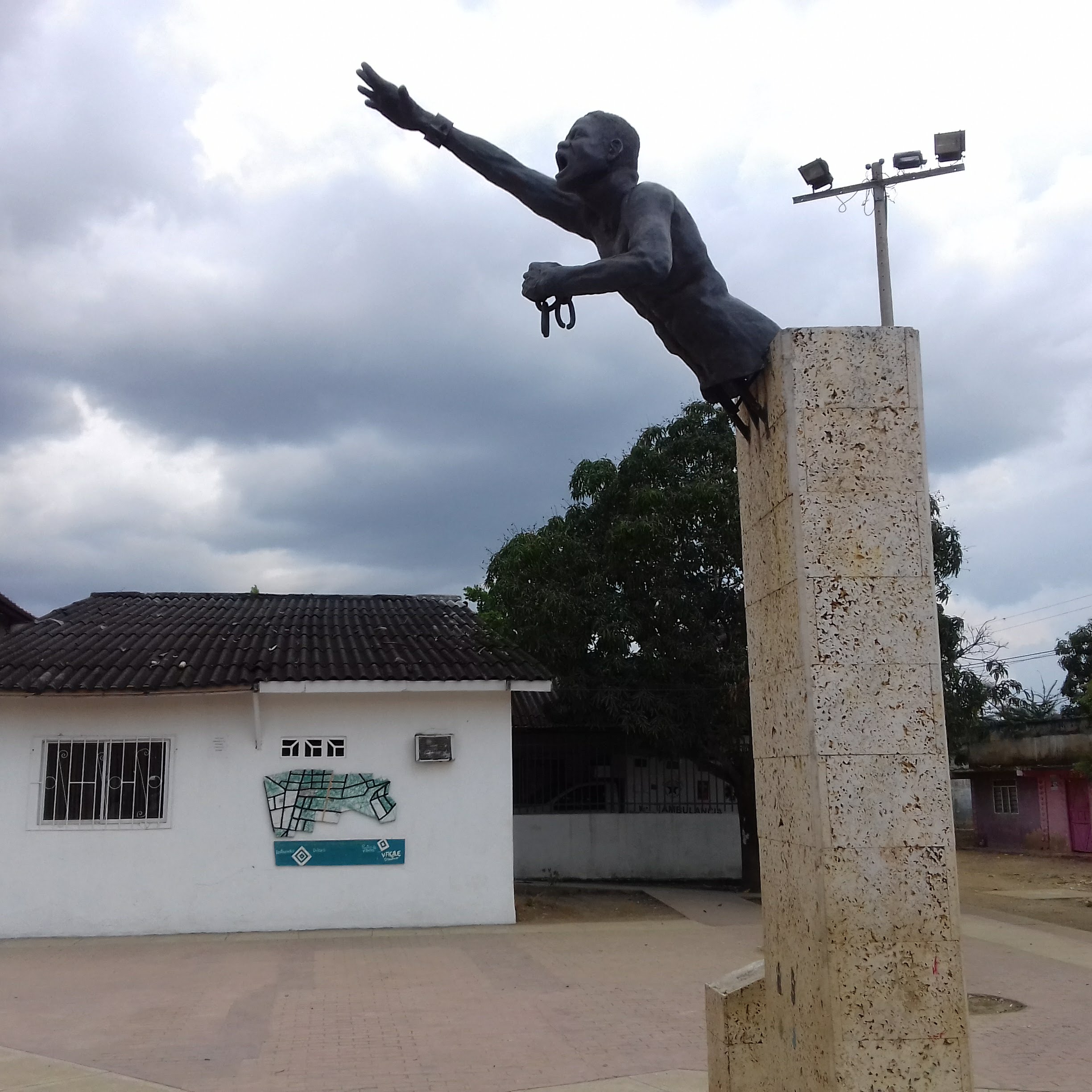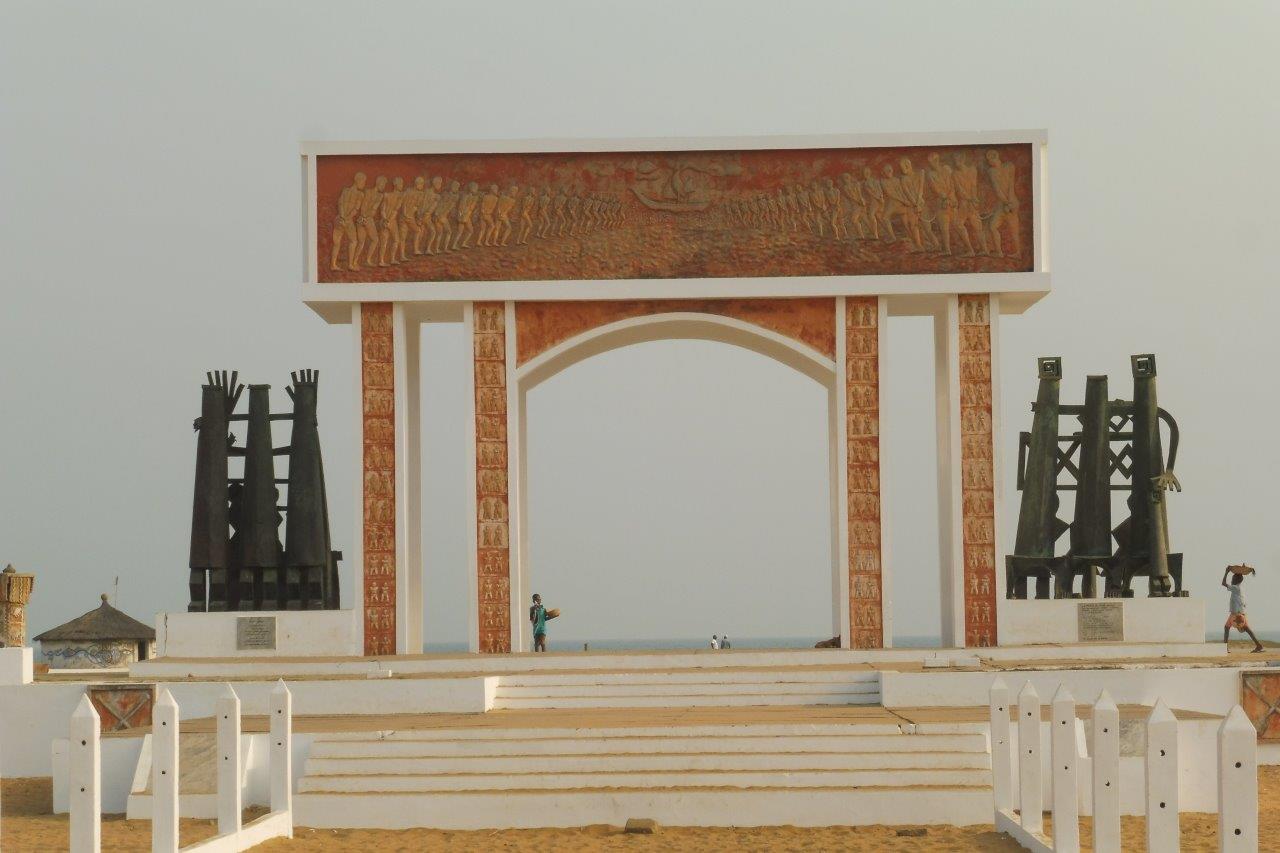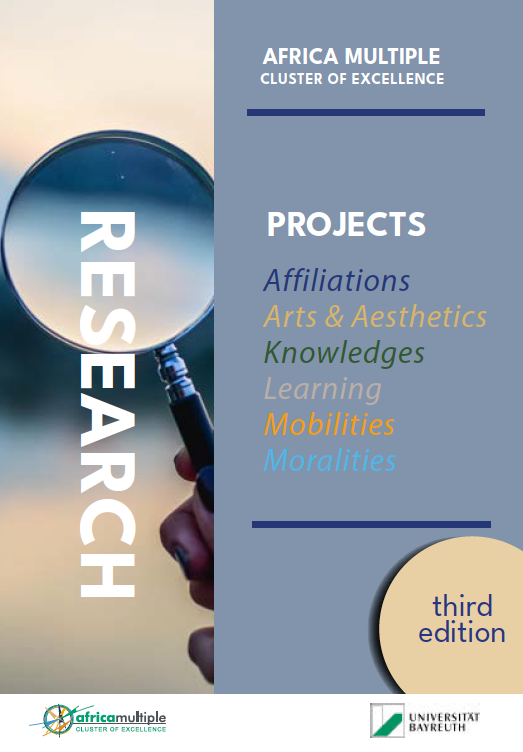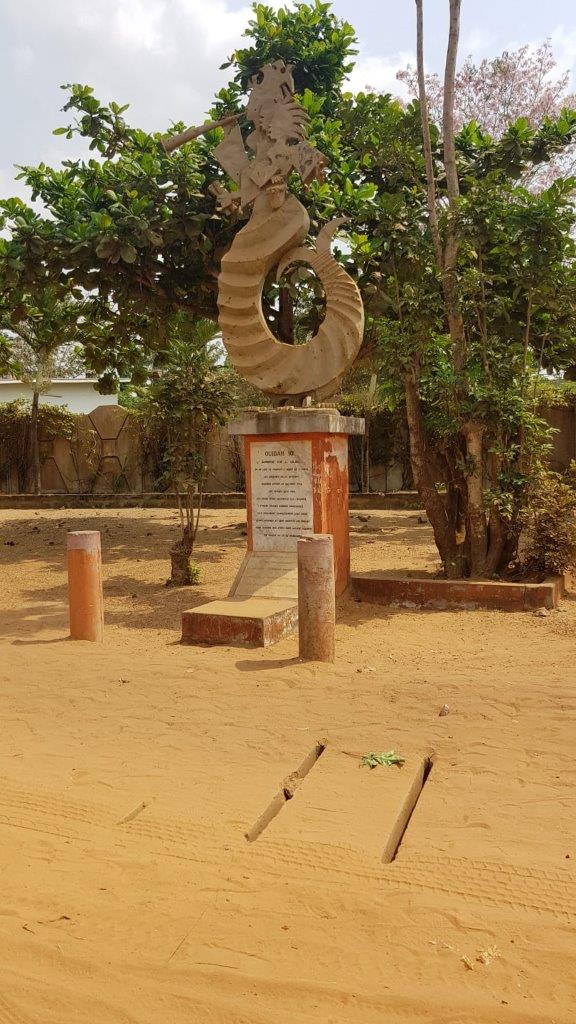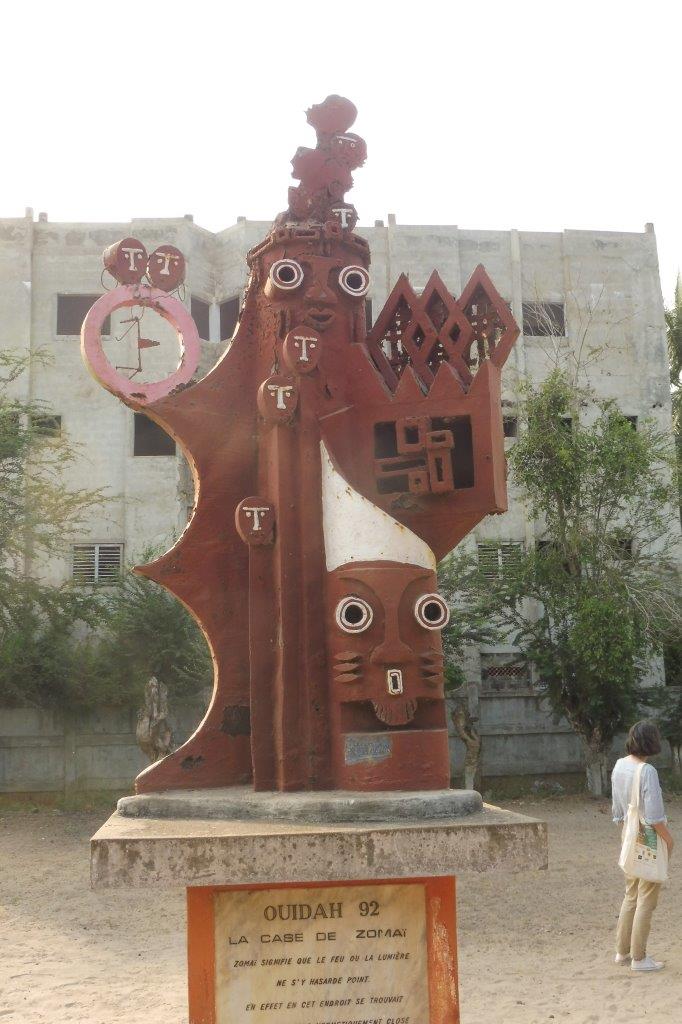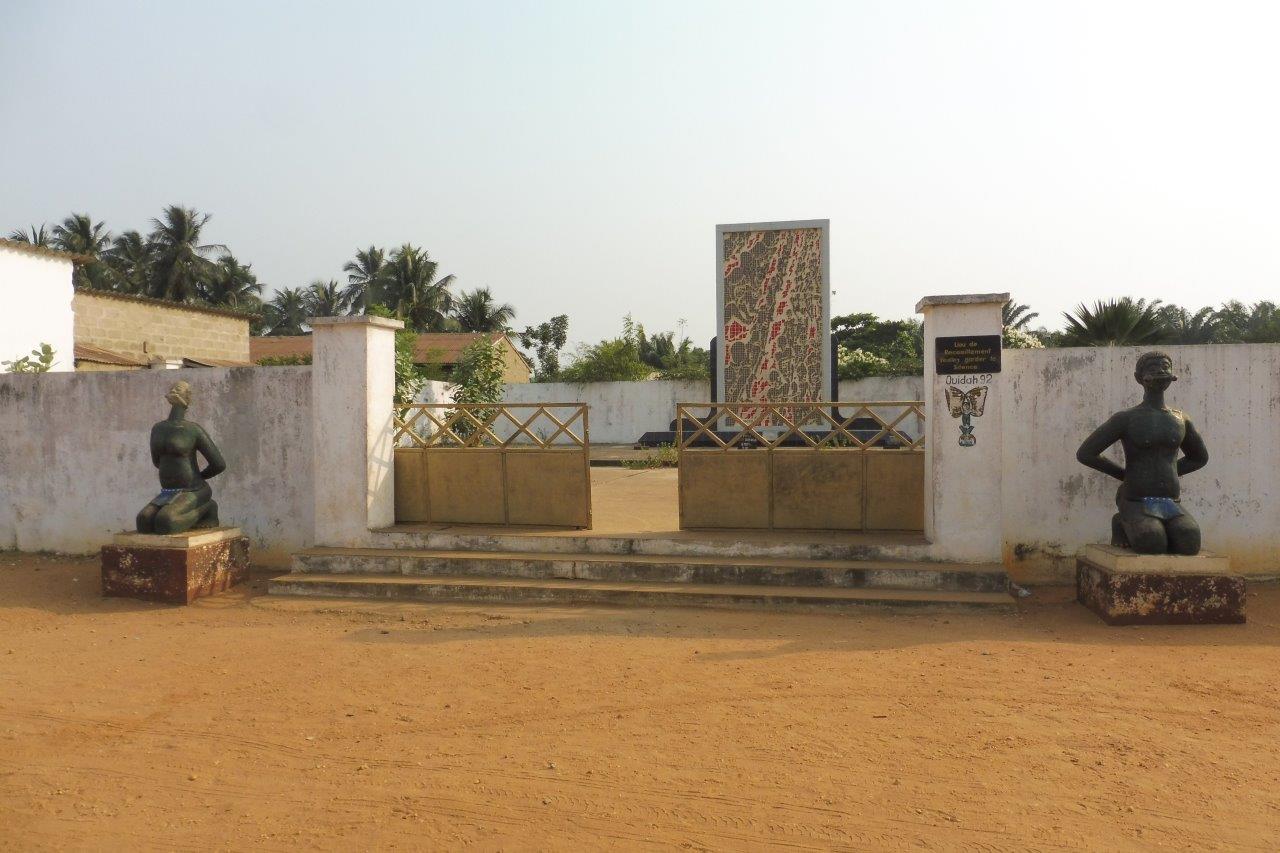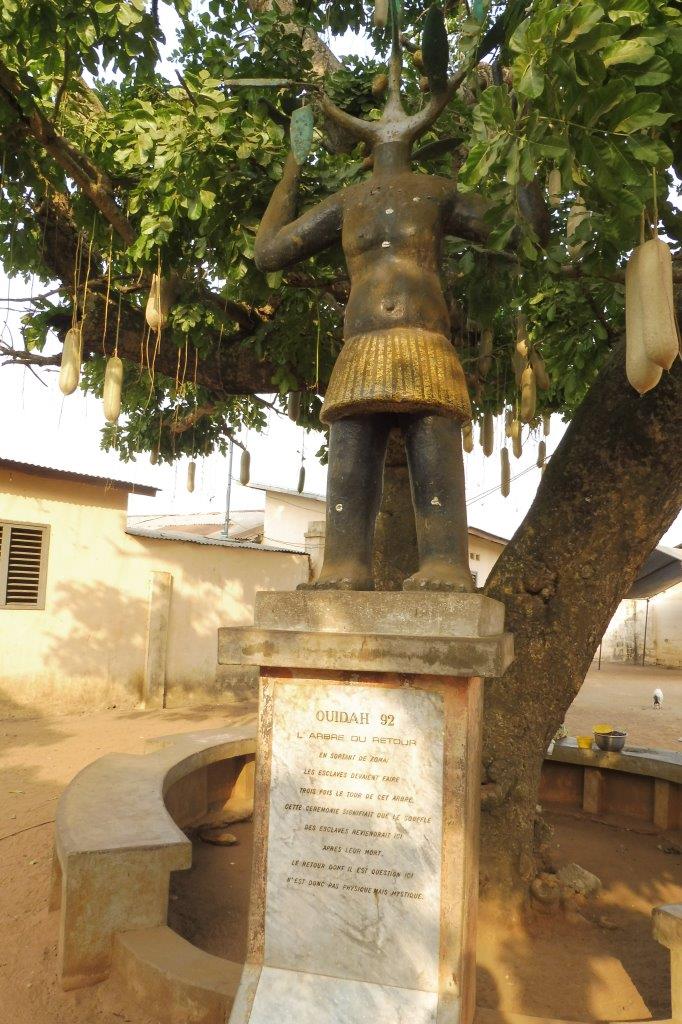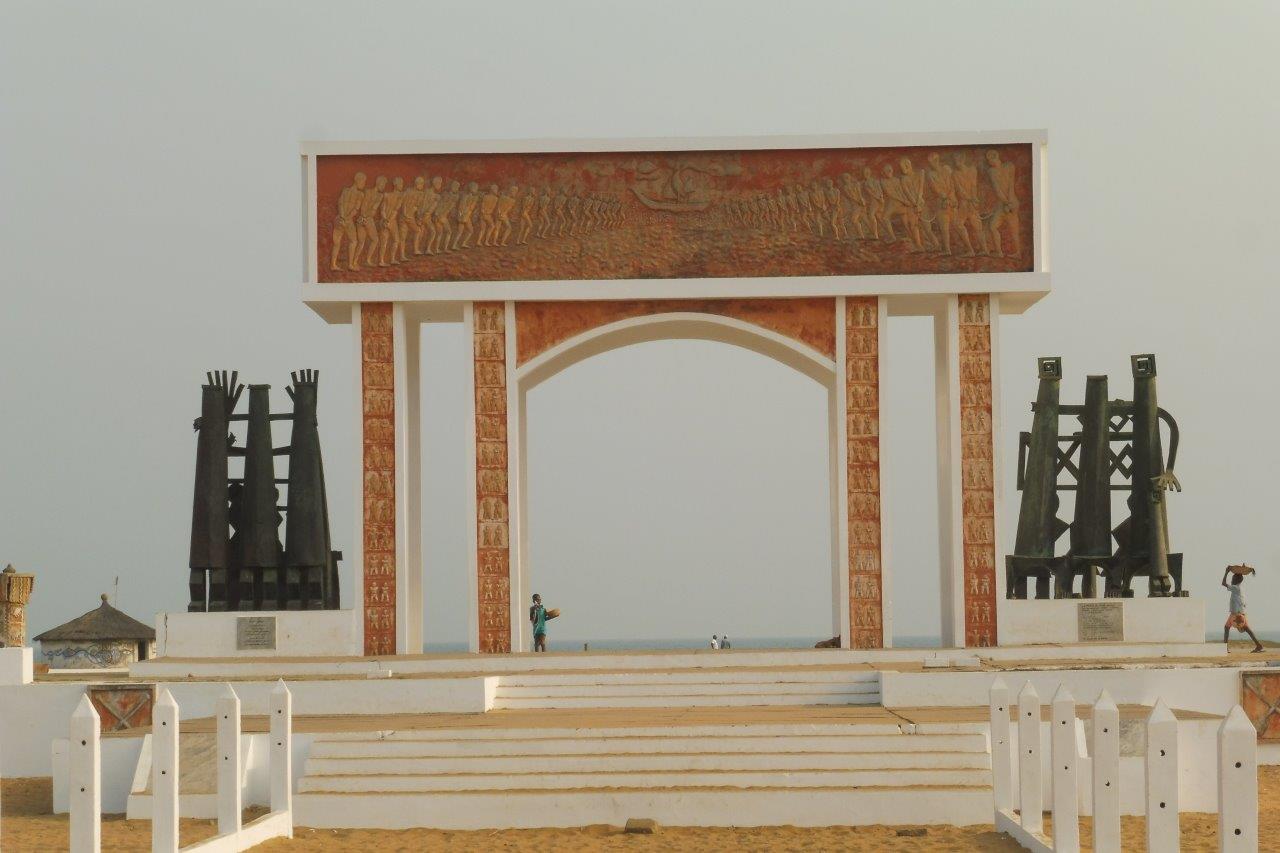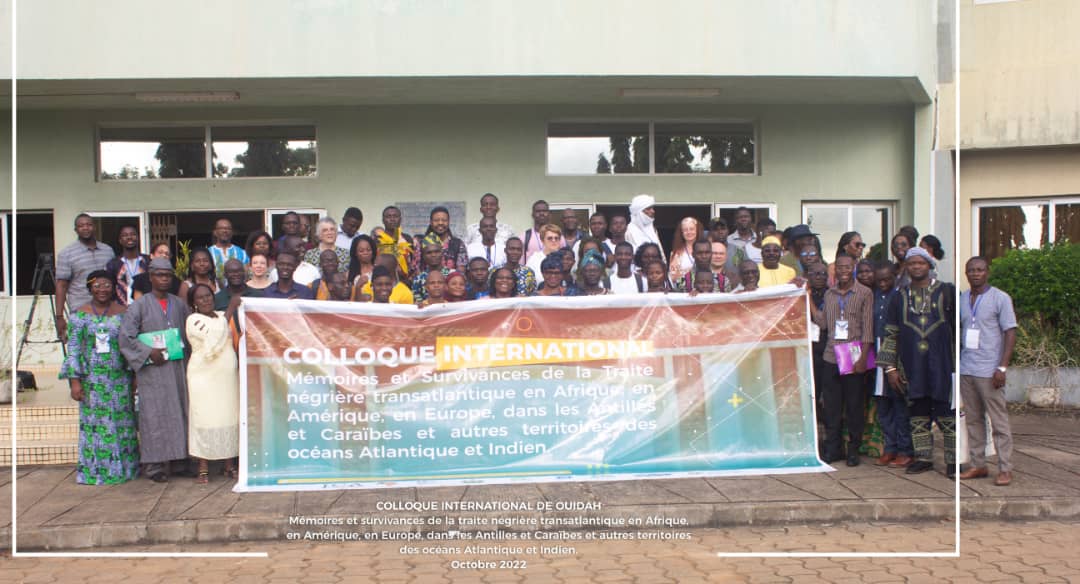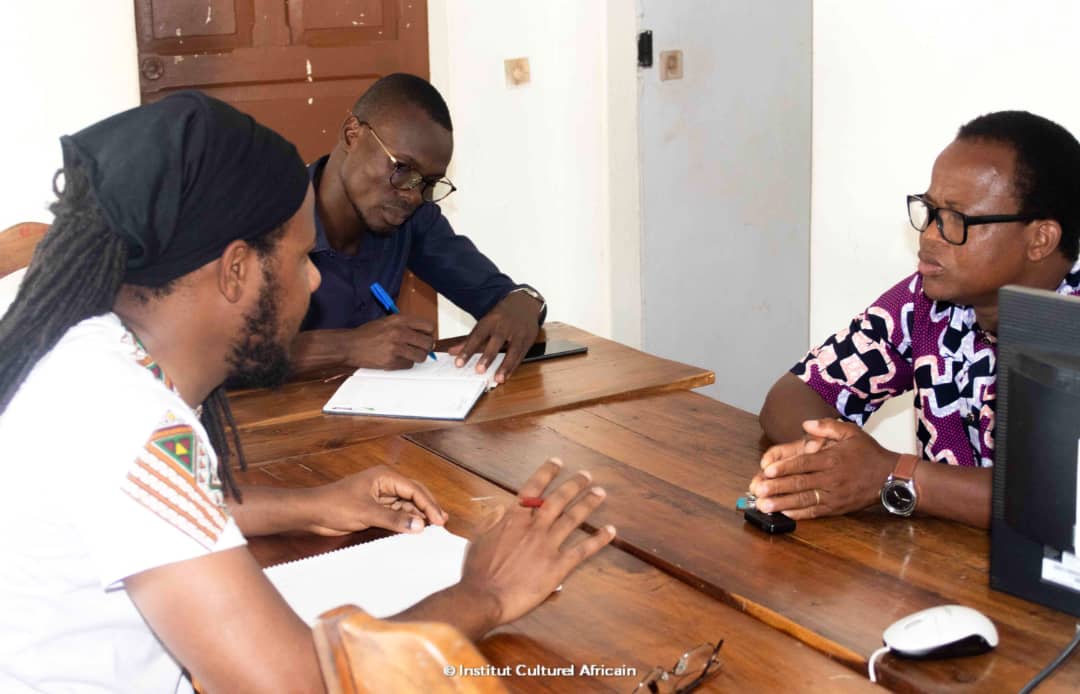“Black Atlantic Revisited” – African and South American UNESCO World Heritage Sites and “Shadowed Spaces” of Performative Memory
-
Research Section: Arts and Aesthetics
-
Project duration: 01.07.2019 - 31.10.2023
-
Find an overview of the project (PDF) here.
Summary
The project examines how memories of slavery are constructed in UNESCO World Heritage Sites in Gorée (Senegal), Ouidah (Benin), Cartagena (Colombia) and Salvador da Bahia (Brazil). It is based on the premise that these heritage sites respond to touristic telos and readings of history that do not go uncontested by alternative memory sites, media and discourses. In this regard, we establish a corpus of literary texts, film, audio/visual and performative arts that in/directly respond to the official sites and instigate alternative archives of lived and shared memories and trauma of the Transatlantic Slave Trade. In the case of Francophone African literature, this has been a relatively neglected subject in contrast to the long tradition in Anglophone and Lusophone countries. Apart from textual and cinematographic analyses, our research critically engages with performative audio/visual practices (photography, painting, comics, songs, etc.) which enter into dialogue with official documents produced in and for the museums/heritage sites.
Key Questions
The overall project will focus on the following research questions:
- How do African/South American Heritage sites contribute to the construction and transmission of memory?
- How do African/South American Heritage sites contribute to the construction and transmission of memory?
- How do arts (literature, dance, performance, film, photography) construct and offer alternative and interactive spaces of memory and how are they en-acted/performed?
These interrogations are premised on the hypothesis that the official UNESCO World Heritage Sites are tourist attractions while having a relatively low impact on daily life, local dynamics, unofficial meaning-making and popular re-inventions of collective identity. This project will analyse the sites as pilgrimage spaces but will go further to examine unofficial enactments of memories constructed around larger communal and interactive endeavours as well as in intermedial art forms in photography, rituals, dance performances and music.
Methods and Concepts
Based on the analyses of the African and South American corpora, we compare themes, motifs, narrative procedures, tropes, etc. to offer insights into the construction of memory and contemporary transatlantic re-writings of slavery. We will engage with concepts such as transatlantic translations on the transformative/syncretic re-production of African cultural knowledges and aesthetics in the Americas under conditions of resilience and resistance. Through this comparative framework, we intend to map out convergent and divergent poetics and ethics of memory and re-membering that have emerged from the historical experience and creative imagination of the Transatlantic slave trade. The practice of vernacular museum is crucial in perpetuating socio-cultural memories through individual and communal efforts in marginal communities as they depend on improvised performance, oral storytelling and intimate interactions aimed at maintaining and invigorating memorial communities.
Vision of the Study
This project envisions a scrutiny of the legacies of transatlantic slavery and fosters a reflection on the specificities as well as the shared components of memory, co-memorative practices, trauma, heritage, re-memberment in Africa as well as its South American diaspora based on case studies in Ouidah (Benin), Gorée (Senegal), Salvador da Bahia (Brazil) and Cartagena (Colombia). Its goals is to show the unravel of the ethical and aesthetical premises and possible limitations of official memorial sites and to come up with analyses of yet unarchived alternative forms of memorialization that take into consideration communal perspectives and ethos. This can only be achieved through collaborative research with colleagues from Brazil, Senegal and Benin as well as transdisciplinary cooperation with philosophers, geographers and art historians within and beyond the Cluster.
Contribution/Relation to the Cluster’s Aims & Goals
The research dwells on the Cluster’s fundamental principle that Africa and African identities are multiple and heterogeneous, with the conceptual map of Africa extending beyond its actual borders by virtue of Africa’s complex migratory histories. Therefore, the project contributes to the concepts of relationality and multiplicity beyond the African continent.
Furthermore, as the project tackles questions of memory and ethics in the realm of historical sites in Africa and Latin America, the outcomes of the workshops will give some responses to the core questions of “reflexivity” in the field of African and Diaspora studies. The study is transdisciplinary by its very nature, straddling different heuristic angles of the Cluster such as medialities, modalities, spatialities and temporality and how they coalesce in composite works of it to represent the complexity of memories of the transatlantic slave trade.
Project Team

Prof. Dr. Ute Fendler
Principal Investigator
Chair Romance and Comparative Literature
University of Bayreuth
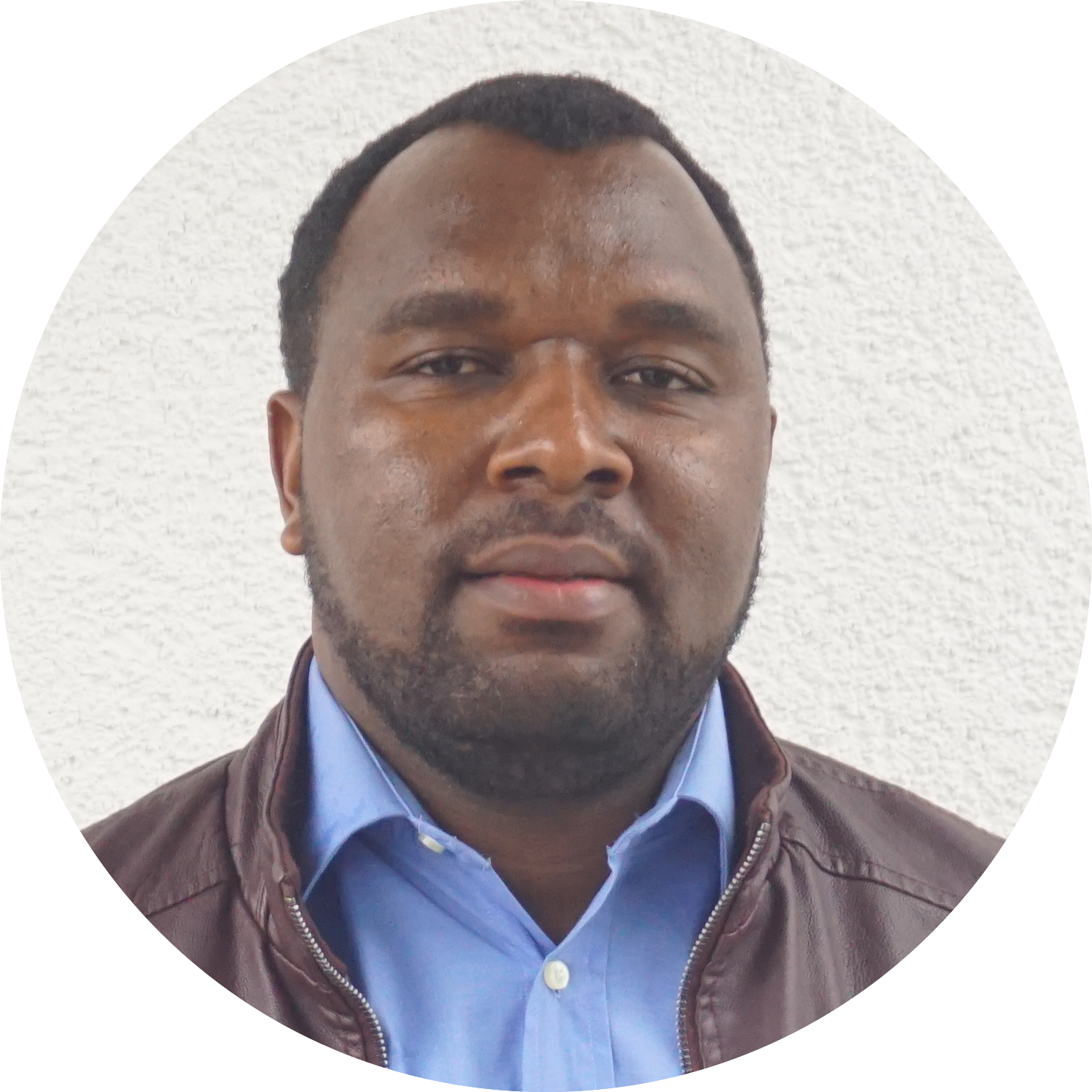
Dr. Habil Gilbert Shang Ndi
Postdoc
Romance and Comparative Literature
University of Bayreuth
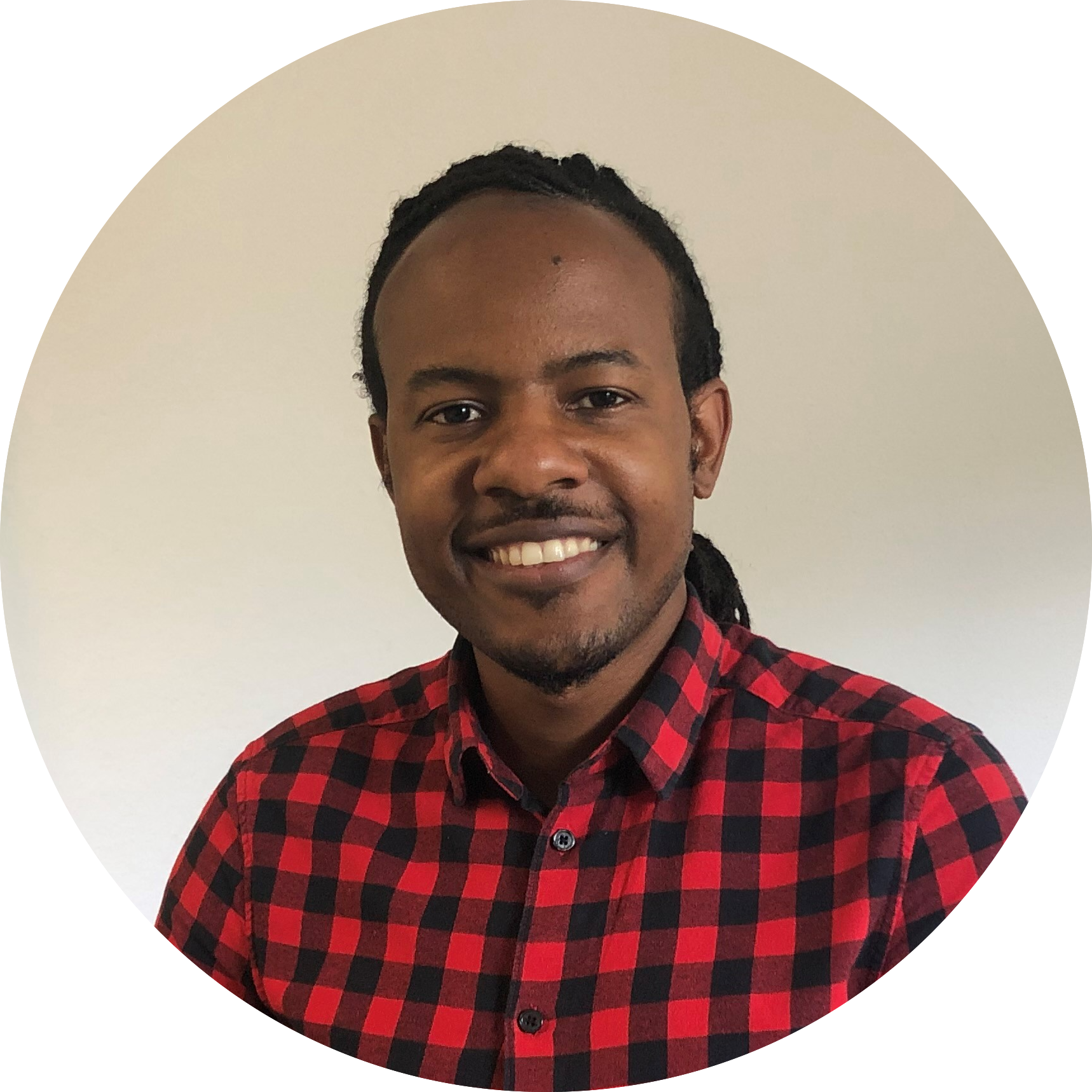
Thierry Boudjekeu Kamgang
BIGSAS PHD Candidate
University of Bayreuth
Key References
- Niaah, Jalani. 2008. “Towards a New Map of Africa through Rastafari ‘Works’”, CODESRIA.
- Fischer-Lichte, Erika. 2004. Ästhetik des Performativen. Frankfurt a.M.: Suhrkamp.
- Ortega, Julio, 2006. Transatlantic Translation: Dialogues in Latin American Literature. Trans. Philip Derbyshire. London: Reaktions Book.
- Young, Linda. 2016. House Museums in the United States and United Kingdom: A History. Lanham: Rowman & Littlefield.
“Black Atlantic Revisited” – African and South American UNESCO World Heritage Sites and “Shadowed Spaces” of Performative Memory.
Research Team
Summary
The project investigates how memories of slavery are constructed in UNESCO World Heritage Sites in Gorée (Senegal), Ouidah (Benin), Cartagena (Colombia) and Salvador da Bahia (Brazil). Our research is based on the premise that these heritage sites respond to touristic telos and readings of history that do not go uncontested and uninterrogated by alternative memory sites and media. In this regard, we establish a corpus of literary texts, film, audio/visual and performative arts that in/directly respond to the official sites and instigate alternative archives of lived and shared memories of the Transatlantic slave trade. In the case of Francophone Africa, this has been a relatively neglected subject in contrast to the long tradition in literature, philosophy and arts in Anglophone countries. Apart from textual and cinematographic analyses, our research critically engages with performative audio/visual practices (photography, painting, comics, songs, etc.) which enter into dialogue with official documents produced in and for the museums/heritage sites.
The central question concerning these African Heritage sites is how they contribute to the construction and transmission of memory. The practice of vernacular museum is crucial in perpetuating socio-cultural memories through individual and communal efforts in marginal communities as they depend on improvised performance, oral storytelling and intimate interactions aimed at maintaining and invigorating memory communities.
Based on the analyses of the African and South American corpora, we would compare themes, motifs, narrative procedures, tropes, etc. to offer insights into the construction of memory and contemporary transatlantic re-writings of slavery. We will engage with concepts such as Transatlantic translations (Ortega 2006) on the transformative/syncretic re-production of African cultural knowledges and aesthetics in the Americas under conditions of resilience and resistance. Through this comparative framework, we intend to map out convergent and divergent poetics and ethics of memory and re-membering that have emerged from the historical experience and creative imagination of the Transatlantic slave trade.
Scheduled Project Duration
4 Years
Activities and Events
International colloquium on Memories and survivals of the transatlantic slave trade - October 20-21, 2022
This colloquium is the final phase of a project that shares the same name (http://www.memoiresetsurvivances.com/), which was led by NGO “Afrique Décide” based in Ouidah, Benin. The symposium brought together ...more
Field trip: Tracing the remnants of the slave trade in Ouidah
Tracing the lingering effects of the slave trade in Ouidah has been a multifaceted endeavor that required both remote and on-site research. In addition to ...more
Workshop: Slave trade memories at the crossroads of literature, performance and history.
The workshop aimed at fostering transatlantic debates by bringing in voices from Latin America and the Caribbean, in order to discuss the coincidences, convergences or divergences in memorial practices/aesthetics in their works. From the discussions, certain trends stood out quite more...
Workshop: L'Atlantique noir revisite: Espaces occultés et (in)visibles; de la mémoire performative.
In the context of the research project « L’Atlantique noir revisité – sites africains et sud-américains classés au patrimoine mondial de l’UNESCO et « espaces occultés » de la mémoire performative », the workshop entitled more...
February 2020: Fieldtrip to Ouidah and Ouidah Conference « Les mémoires de l’esclavage dans la littérature les arts et les musées
February 2020: Workshop Research Section (RS) “Arts & Aesthetics” On Worlds and Artworks
- African Literature: The Pulse of a continent in movementHide
-
This is a series of dialogues with some of Africa’s and African diaspora’s most prominent authors. The dialogues constitute the 2021 edition of Literature Today, organized and sponsored by the Colombian public library Luis Ángel Arango, Bogotá - Colombia. The interviewed authors include Dr. Joyce Ashuntantang (Cameroon/US) Biyi Bandele (Nigeria/UK) Tsitsi Dangarembga (Zimbabwe), Patrick Chamoiseau (Martinique), Jean Bofane (Congo), Lebogang Mashile (SA) and Susan Kiguli (Uganda). Held between June and November 2021 and moderated by Dr. habil Gilbert Shang Ndi, the discussions seek to build bridges between African and Latin American literatures around a variety of issues such as identity, literary commitment, activism, education, memory, colonialism, hope, influences, love, etc. You can access these interviews on Youtube through the library's page and a further link shared in the video below.
For more information, please click here.
To access the library's page on Youtube, please click here. - 11th Iberian Conference on African Studies - June 2022Hide
-
Following the evolution of the pandemic of COVID-19 and as considering the guidelines from the Dean of the University of Lisbon and the Director of the School of Arts and Humanities (FLUL) for the new academic year, the Organizing Committee decided to reschedule the CIEA11 for 6-8 July 2022. The Organizing Committee considers that the on-site model is the one which serves the purposes of a scientific meeting of the nature and size which we anticipate for the CIEA11. With this decision we hope to guarantee the needed horizon of stability to make sure that the CIEA11 takes place in total safety conditions and in an environment compatible with intense and engaged scientific debate. All registrations accepted are still valid. In due course, more information on the organization calendar and the resulting procedures will be released.
It will be held by the Center for History of the University of Lisbon (CH-ULisboa).
The first CIEA edition took place in 1991 and throughout its ten editions it has become one of the most important scientific meetings on African Studies in Europe. Taking place regularly in Spain (10th edition was in Granada, 2018) and in Portugal, each edition brings together hundreds of participants. The last one was held by AFRICAInEs: Investigación y Estudios Aplicados al Desarollo, Universidade de Granada, and took place in January 2018.
The 11th CIEA is entitled African Transits in the Global World: History and Memories, Heritage and Innovation.- Find the panel proposal here.
- To access the website of the conference, please click here.
- "El Encuentro de las Tierras | The Confluence of Roots" - Watch it on Youtube
- „On Worlds and Artworks” mirrors work of the Research Section "Arts and Aesthetics" - February 2020Hide
-

From 10 to 14 February 2020, the Research Section “Arts and Aesthetics” organized its first workshop with the title “On Worlds and Artworks”. It took place partly in the Research Institute of Music Theater (FIMT) in Thurnau and partly in Iwalewahaus, mirroring the broad range of arts represented in the Research Section.
To find more information, please click here.
- Fieldtrip to Ouidah and Ouidah Conference - February 2020Hide
-
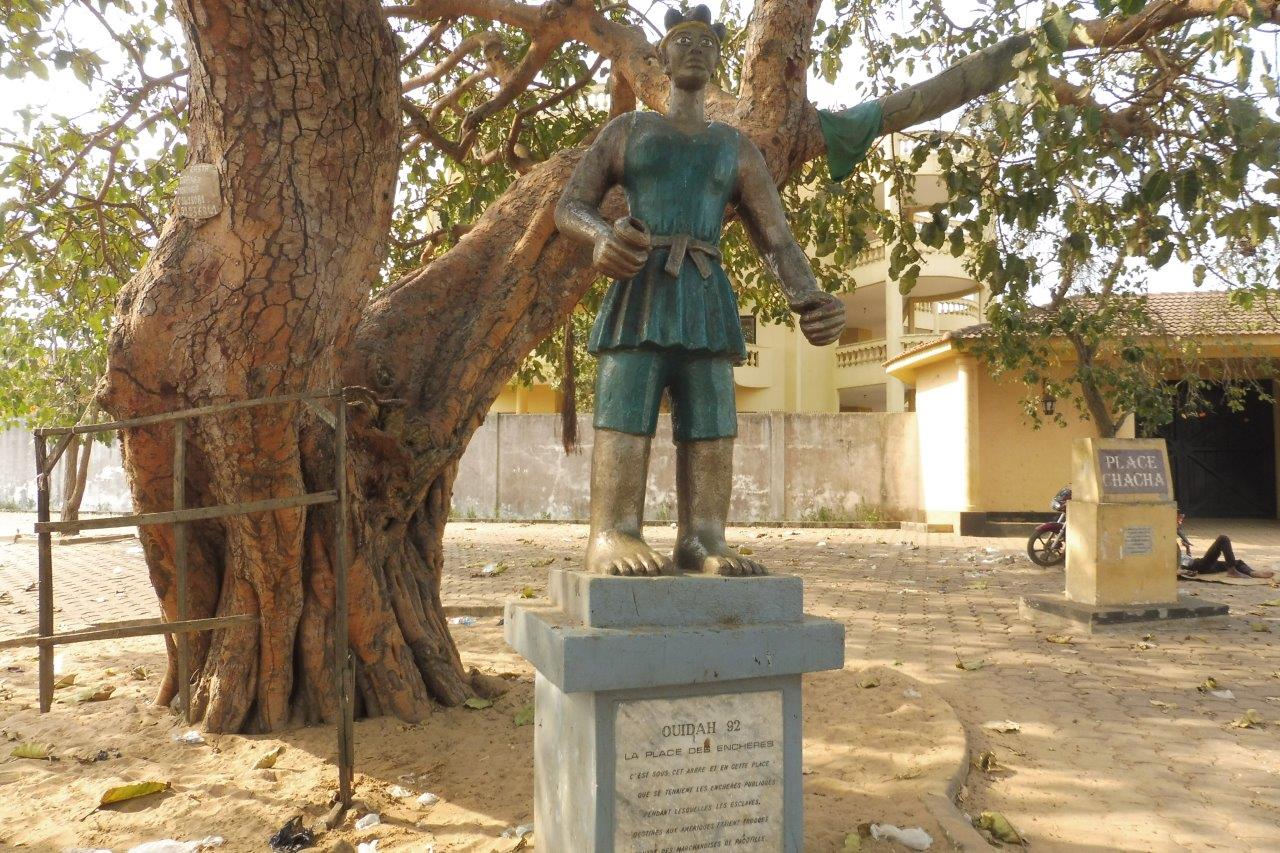
From 31st January to the 9 February, members of Project Black Atlantic Revisited carried out its first field trip to Benin. This trip coincided with a 3-day international colloquium on Slavery organised in the historic city of Whydah by the University of Abomey Calavi in cooperation with Le Mans Université in France.
To find more information, please click here.



